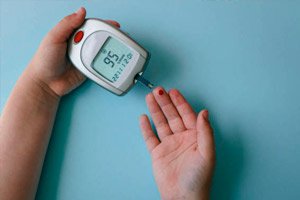
All iLive content is medically reviewed or fact checked to ensure as much factual accuracy as possible.
We have strict sourcing guidelines and only link to reputable media sites, academic research institutions and, whenever possible, medically peer reviewed studies. Note that the numbers in parentheses ([1], [2], etc.) are clickable links to these studies.
If you feel that any of our content is inaccurate, out-of-date, or otherwise questionable, please select it and press Ctrl + Enter.
Mortality risk increases with low income in people with type 2 diabetes mellitus
Last reviewed: 02.07.2025
 ">
">In adults with type 2 diabetes (T2D), mortality risk increases with lower income, with the largest increase seen in adults aged 20 to 39 years, according to a study published online in JAMA Network Open.
Dr. Ji Yoon Kim, Ph.D., from the Korea University College of Medicine in Seoul, and colleagues estimated the overall and cause-specific mortality risk among patients with T2D by income and age in a retrospective national cohort study of 604,975 adults aged 20 to 79 years diagnosed with T2D between January 1, 2008, and December 31, 2013, who were followed through December 31, 2019, and 635,805 age- and sex-matched controls without diabetes.
The researchers found that in patients with T2D, mortality risk increased with decreasing income overall and compared with nondiabetic controls. In younger adults, there was an inverse association between income and mortality risk (adjusted hazard ratios for all-cause mortality for low- and high-income subgroups were 2.88, 1.90, and 1.26 for those aged 20–39, 40–59, and 60–79, respectively). The same pattern of income differences was observed in younger adults for cardiovascular mortality, but to a lesser extent for cancer mortality.
"Individual income level was an independent risk factor for mortality in patients with T2D, and income-related mortality inequalities were particularly pronounced in young people," the authors write.
